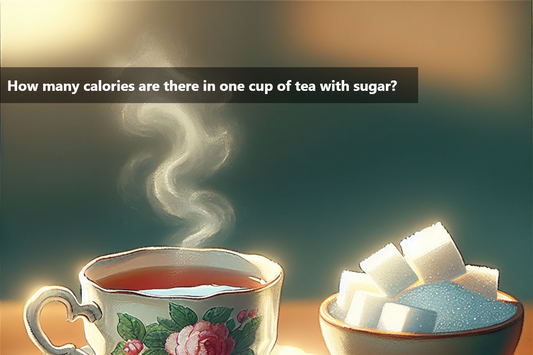Stevia leaf, known for its intense sweetness, comes from the Stevia rebaudiana plant. This natural sweetener has gained popularity as a healthier alternative to sugar due to its zero-calorie content.
Derived from the leaves of the stevia plant, stevia leaf extract is about 200 to 300 times sweeter than regular sugar. Stevia leaf is often used as a natural sugar substitute in various food and beverage products, including teas, yogurts, and baked goods. Its sweetening properties make it a versatile ingredient for those seeking a healthier lifestyle without sacrificing taste.
Health Benefits
Stevia is a good choice for people with type 2 diabetes since it has no calories or sugars that raise blood sugar levels. It also provides some health perks. Check out the benefits of stevia! Lots of protein powders for women include stevia for sweetness.
Zero Calories: Stevia is a calorie-free sweetener, making it an excellent alternative to sugar for those looking to manage their calorie intake and weight.
No Impact on Blood Sugar Levels: Stevia does not affect blood sugar levels, making it a suitable sweetener for people with diabetes or those who need to regulate their blood glucose levels.
May Help Control Blood Pressure: Some studies suggest that stevia may help lower blood pressure levels. Components in stevia called steviol glycosides may have a vasodilatory effect, helping to relax blood vessels and reduce blood pressure.
Antioxidant Properties: Stevia contains compounds with antioxidant properties, such as flavonoids, which help protect the body from oxidative stress and inflammation.
May Aid in Weight Management: Since stevia is calorie-free and does not affect blood sugar levels, it can be a helpful tool for reducing calorie intake and managing weight when used as a sugar substitute.
Dental Health: Stevia does not contribute to tooth decay or cavities, unlike sugar. Using stevia as a sweetener may help maintain dental health by reducing the risk of dental caries.
Potential Anti-inflammatory Effects: Some research suggests that stevia may have anti-inflammatory properties, which could help reduce inflammation in the body and lower the risk of chronic diseases associated with inflammation.
May Support Digestive Health: Stevia is not fermented by the bacteria in the mouth, which means it does not contribute to the formation of acids that can harm tooth enamel. Additionally, it is not metabolized by the body, so it does not lead to gastrointestinal discomfort or digestive issues.
Safe Alternative to Artificial Sweeteners: Unlike artificial sweeteners such as aspartame or saccharin, stevia is a natural sweetener derived from plant sources and is generally considered safe for consumption.
Nutritional Facts of Stevia Leaf
Calories: |
0 |
Fat: |
0g |
Sodium: |
0mg |
Carbohydrates: |
1g |
Fiber: |
0g |
Sugars: |
0g |
Protein: |
0g |
Uses of Stevia
Sweetening Beverages: Stevia is used to sweeten tea, coffee, lemonade, and fruit-infused water without adding calories or sugar.
Baking and Cooking: It's a sugar substitute in baking cakes, cookies, muffins, and sauces to reduce calories and sugar content.
Desserts and Sweets: Stevia sweetens desserts like puddings, ice creams, yogurt, and fruit salads.
Preserving Foods: It acts as a natural preservative in homemade jams, jellies, and fruit preserves.
Condiments and Sauces: Stevia adds sweetness to condiments like ketchup, barbecue sauce, and marinades.
Smoothies and Shakes: Used to sweeten homemade smoothies, protein shakes, and blended drinks.
Cereal and Oatmeal: Sprinkled on cereal or stirred into oatmeal for sweetness without added sugar.
Low-Carb and Keto Diets: Popular for sweetening foods without impacting blood sugar levels.
Homemade Beauty Products: Included in facial masks, scrubs, and lip balms for its natural sweetness and antimicrobial properties.
Medicinal Purposes: Some traditional medicine practices use stevia for potential health benefits like blood sugar regulation and digestive support, but more research is needed.
Potential Side Effects
While stevia is generally considered safe for most people when used in moderation, some individuals may experience side effects, especially when consuming large amounts or highly processed forms of stevia. Here are some potential side effects associated with stevia:
Gastrointestinal Issues: Some people may experience digestive problems like bloating or diarrhea when consuming stevia.
Bitter Aftertaste: Stevia can have a bitter aftertaste, especially in high concentrations or certain formulations.
Allergic Reactions: While rare, some individuals may be allergic to stevia, experiencing symptoms like itching or swelling.
Blood Sugar and Blood Pressure: Stevia may affect blood sugar levels and blood pressure, which can be a concern for individuals with diabetes or hypertension.
Hormonal Effects: There's some evidence suggesting stevia may have hormonal effects, although research is ongoing.
Interactions with Medications: Stevia might interact with certain medications, so it's important to consult a healthcare professional if you're taking prescription drugs.
Bottom Line
Stevia leaf is a plant famous for its natural sweetness, which makes it a popular choice for a healthier sweetener instead of regular sugar. In this blog, we've talked about the different sides of stevia leaf, like its health benefits, uses, controversies, and more.
When it comes to health benefits, stevia leaf is great because it doesn't have any calories, making it a good pick for people trying to cut down on sugar without sacrificing taste. It also has potential health perks, like helping with weight control and managing blood sugar levels.
Talking about the debates around stevia leaf, such as possible side effects and rules about its use, it's important to think about the facts and decide wisely before using it.
To sum it up, stevia leaf is a promising natural sweetener that gives a healthier alternative to sugar with zero calories and potential health benefits. As people look for healthier choices, stevia leaf proves to be a great addition to the sweetening options available.
This Blog post is an initiative by DiabeSmart, to provide accurate and Nutritionist / Doctor approved information related to Diabetes. DiabeSmart is India's first Food brand designed specifically for Diabetics, that has been clinically tested on Diabetics and Pre-Diabetics to deliver 55% - 70% lower Sugar spikes. DiabeSmart is part of Lo! Foods - India's leading brand for Everyday Functional Health foods.











